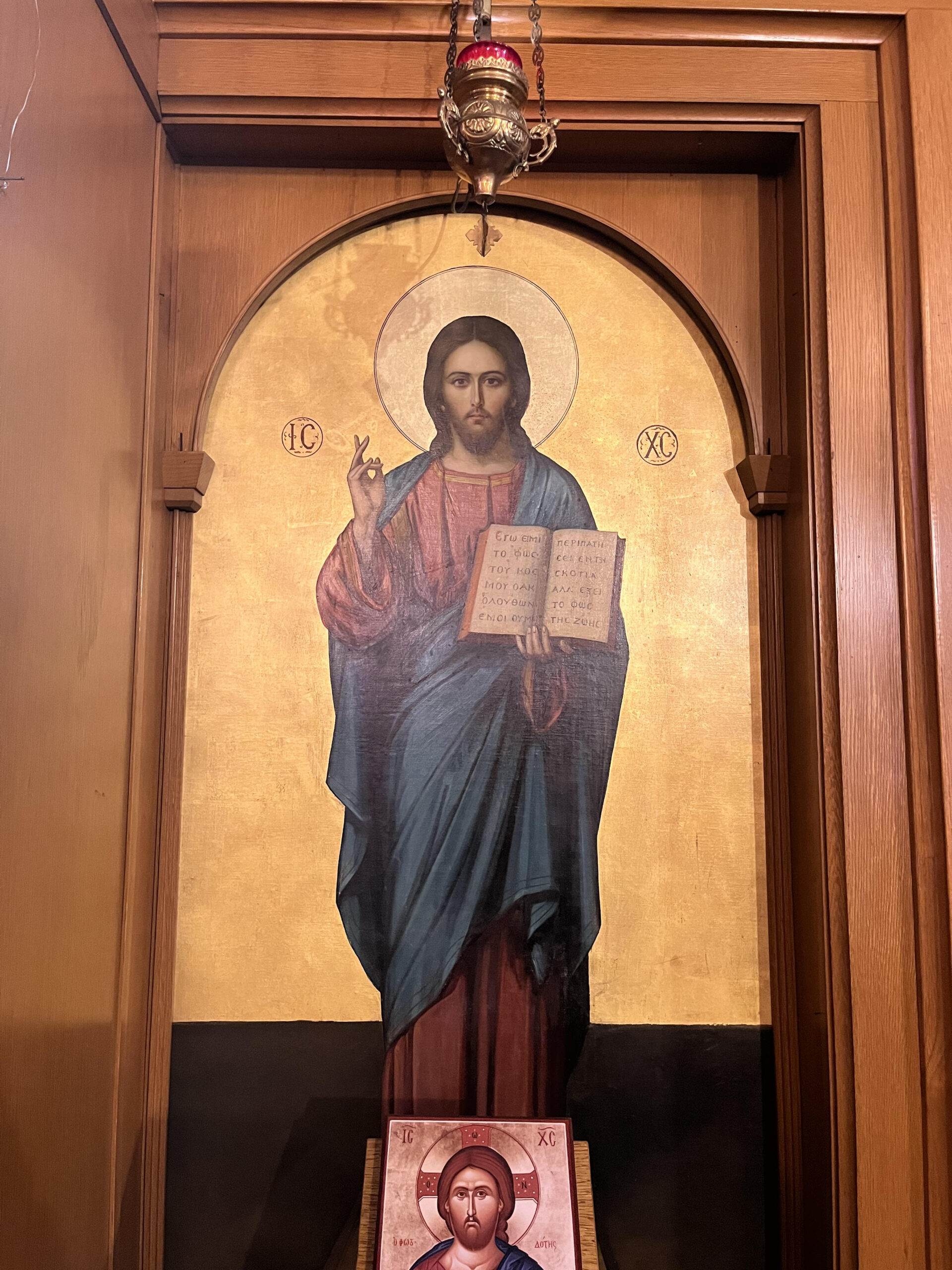When Christ who is our life appears, then you also will appear with Him in glory. Put to death therefore what is earthly in you: fornication, impurity, passion, evil desire, and covetousness, which is idolatry. On account of these the wrath of God is coming. In these you once walked, when you lived in them. But now put them all away: anger, wrath, malice, slander, and foul talk from your mouth. Do not lie to one another, seeing that you have put off the old nature with its practices and have put on the new nature, which is being renewed in knowledge after the image of its creator. Here there cannot be Greek and Jew, circumcised and uncircumcised, barbarian, Scythian, slave, free man, but Christ is all, and in all.
Colossians 3:4-11 (Sunday of the Forefathers of Christ)
The Epistle from this Sunday appears two Sundays before the Nativity each year, a Sunday known as the Sunday of the Forefathers of Christ. We know that the Feast of the Nativity commemorates the Incarnation of the Son of God in the flesh, who came to earth to inaugurate the Kingdom of God on earth. He came to teach us to live “heavenly” lives in this life, in preparation for the entrance into His Kingdom for eternal life. The Epistle to the Colossians touches on some things we are to keep in mind as we inaugurate a Christ-like way of life into our earthly life.
First, we are to “put to death therefore what is earthly” in us—things like “fornication, impurity, passion, evil desire, (and) covetousness” (Colossians 3:5) which includes making idols of things, these things stand in direct opposition to God’s will for our lives. If we are going to follow after Christ, these are things we need to stop. Further, St. Paul tells us to put away “anger, wrath, malice, slander, and foul talk” from our mouths. (3:7) If a Christ-like life calls for purity, goodness, gratitude, peace, love, and goodness, then these things described in verses 3 and 7 are incongruent with a Christian walk.
Continuing on in verses 9-10, St. Paul contrasts the old nature with the new nature, and in verse 11, he qualifies that in the new nature there will be neither “Greek and Jew, circumcised and uncircumcised, barbarian, Scythian, slave, free man.” The Old Covenant considered the Jews to be God’s people. The Jews needed circumcision in order to belong. Greeks and others were considered barbarians. In the New Covenant, which Christ was about to inaugurate on earth through His Incarnation, Christianity is open to all people. There would be no distinctions between Greek and Jew, circumcised and uncircumcised. Christ came to grant salvation to all nations, and in His Great Commission to the Apostles, He told them to “make disciples of all nations.” (Matthew 28:19)
The Incarnation of Christ was a “game changer” for the world. The Old Covenant made the Jews exclusively God’s people. Their understanding of God was that God resided exclusively in the temple. The sign of being one of God’s children was circumcision. And the fundamental practice of the Old Covenant was strict adherence to the Mosaic Law.
The New Covenant was for all people. God isn’t only in the temple but everywhere, even where two or three are gathered in His Name. (Matthew 18:20) The sign of our Christianity is that we are baptized. And the fundamental practice of the New Covenant is Christ’s commandment to love God and to love one another.
Though the Incarnation happened once, we relive it each year. In the days before we celebrate the Nativity, there are “announcements” in the hymns and the Scripture readings of the services that the spiritual tide was about to turn with the Incarnation of Christ. And even though we go through the ritual of “announcing” something that has already happened, these announcements serve as important reminders to us that the tide of the world turned with the coming of Christ, and that the tide of the world needs to continually be turned towards Christ.
This begins, of course, with us, and our decision to die to what is earthly and to “put on the new nature, which is being renewed in knowledge after the image of its Creator. (3:10)
Come all who love our ancestors, and duty-bound exultantly let us assemble and honor the memory of the Father Jacob, Isaac and Abraham, from whom descended Christ the Lord when He became incarnate in His abundant compassion. (Exapostelarion, Orthros, Sunday of the Forefathers, Trans. by Fr. Seraphim Dedes)
Focus on avoiding ungodly things and on being Christ-like today!
